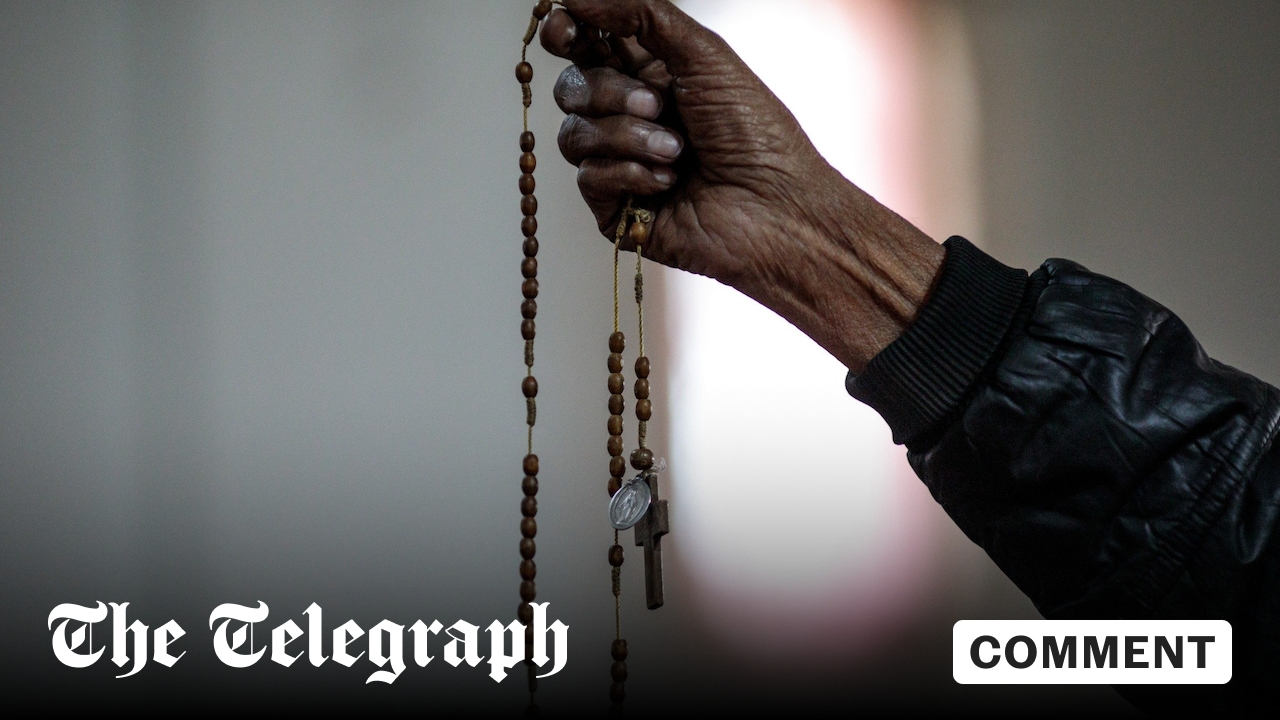Nobody pretends that the situation in the West Bank is acceptable, but the consequences of political caricature are dangerous
Copy link
twitter
facebook
whatsapp
email
Copy link
twitter
facebook
whatsapp
email
Copy link
twitter
facebook
whatsapp
email
Copy link
twitter
facebook
whatsapp
email
Campaigning for the persecuted church can be emotionally and physically exhausting. I’ve looked at bloody, terrifying scenes hours after a massacre, cried with people whose family members were slaughtered, read the statistics and shook with righteous anger.
Yet so many people who should know better reject what they are told, and argue that Christians are powerful, wealthy, and, if anything, are the ones doing the persecuting. Such naive and ignorant responses fail to grasp the power dynamics of Africa and Asia in particular, and the true nature of world religions.
Let’s start with the facts. Close to 400 million Christians live in danger of persecution, and last year almost 5,000 were murdered because of their faith and more than 7,500 churches and religious properties were attacked. The number of countries where persecution is deemed likely has steadily increased, with North Korea, Somalia, Yemen, Libya, and Sudan acutely dangerous for Christians.
Currently we’re seeing another outbreak of anti-Christian violence in Nigeria, with churches invaded and Christians murdered, sometimes in front of their families, and Catholic and Methodist clergy abducted. The culprits are usually members of the Islamist Boko Haram insurgency, many of whose victims down the years have been other Muslims.
All of this – and more – has been condemned by churches in the West, but it’s not a dominant theme in the mainline Christian narrative. Instead, what has been given a great deal of time and space recently is the ostensibly unacceptable treatment of Palestinian Christians by Israel. Now, this is different from a Christian support for peace in the region, the backing of a Palestinian state, or campaigning for justice for the Palestinian people – it is something far more worrying. It’s also misplaced, and I wonder if church leaders who visit Israel are being shown the full picture.
Let’s look at the make-up of Israel. To begin with, there’s a major difference between Israel and the West Bank. Israeli Arabs –full citizens of the country, who represent more than 20 per cent of the Israeli population – are predominantly Muslim, but include a substantial Christian minority. They have the same legal rights as Jewish citizens and are not a persecuted class, though they do suffer some socio-economic disadvantages (such as poorly funded schools) depending on where they live.
There are also guest workers in Israel who are Christian, and Israeli Jews who follow Jesus. Take the case of Yaron Lischinsky and Sarah Milgrim, the young couple murdered in May in Washington DC by a gunman shouting “Free Palestine”. They worked at the Israeli embassy. Lischinsky was born to a Jewish father and a Christian mother and was a believing and practising Christian who was dedicated to the Israel state.
During the October 7 Nova festival massacre, Arab-Israeli paramedic Awad Darawshe, a Christian, was killed while caring for the wounded. There were also Thai and Filipino victims, some of whom were Christian. There are Christians, as well as Muslims and Druze, who serve in the IDF.
It could be argued that in recent years an anti-Christian attitude has developed among some within the ultra-orthodox settler movement – indeed, I’ve experienced it myself – but this is confined to specific areas, is fairly recent, and is utterly condemned by the rest of Israeli society.
Within the West Bank, however, it’s a different matter. There can be no denying that a combination of settler aggression, military indifference or even support for that aggression, and harsh government policies, have made life extremely difficult for local Christians. Those who visit these communities see the injustice and speak out. They’re often justified in what they say – but a failure to present the whole Israeli-Jewish attitude towards Christians and Christianity has played into the hands of those who would do Israel harm, and is manipulated by the new wave of Right-wing anti-Semites with sizeable followings online.
Why this misplaced focus? For one thing, it’s a lot easier to criticise the wrongdoings of the Jewish state than the sins of countless Muslim ones, where active persecution of Christians is rife. There’s a fear of alienating the Muslim community, and a desire for ecumenism with a large and growing minority faith.
Another factor is the growth in popularity of replacement theology – or Supersessionism – the doctrine that the Church has replaced the Jewish people as God’s chosen. It may sound obscure and innocuous but, again, it’s being used by those with a strong bias against Israel and Jews.
It’s the vocation of Christians to speak up for those being mistreated. Nobody pretends that the situation in Gaza and the West Bank is acceptable. It’s also the vocation of Christians to understand cause and effect, their own involvement in the current situation in the Middle East, and to reject political caricature, especially when the consequences can be so dangerous.
When it comes to addressing persecution, the Church needs to look again at its priorities.
More from Michael Coren
Copy link
twitter
facebook
whatsapp
email
